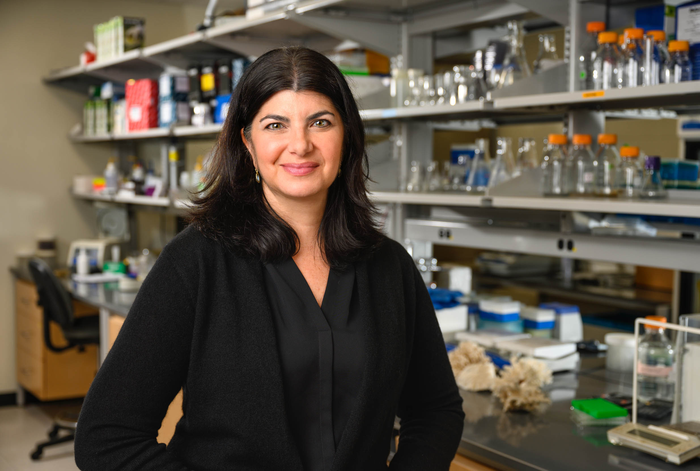From the Florida Keys to the Caribbean Sea, coral reefs, the complex ecosystems that house 25% of marine species, are dying from a novel infection known as stony coral tissue loss disease (SCTLD).

Credit: Randy Gentry/UTA
From the Florida Keys to the Caribbean Sea, coral reefs, the complex ecosystems that house 25% of marine species, are dying from a novel infection known as stony coral tissue loss disease (SCTLD).
To predict and contain its spread, Laura Mydlarz, professor of biology at The University of Texas at Arlington, and a multi-institution team of researchers led by the University of the Virgin Islands received a $2.5 million grant from the National Science Foundation to develop a model that tracks the patterns and effects of the lethal pathogen.
SCTLD is a highly contagious disease that rapidly kills coral tissue. Once a single polyp becomes infected, a coral’s colony could die within weeks to months, research shows, leaving behind only the animal’s white skeleton. While many diseases threaten coral ecosystems, SCTLD is of particular concern to scientists because of its rapid transmission, high mortality and expansive geographic range.
Mydlarz’s lab, funded by a subaward of nearly $300,000, will examine coral immune responses to the disease.
“Similar to coronavirus where you have radically different immune responses depending on the individual host, the same variety of reactions occurs across coral species,” Mydlarz said. “Determining which factors contribute to a successful immune response, where the coral is able to recover and survive, could help researchers fortify more vulnerable species.”
A team of UTA researchers will collect samples from shallow-water reefs near the U.S. Virgin Islands and transport them to an on-campus lab for further study. The team will extract RNA and conduct sequencing to see which genes are expressed when the corals are under stress. Using that data, they will compare the genes of healthy and sick corals to monitor how their genes change over time.
The cause of SCTLD is poorly understood, though Mydlarz notes that climate change weakens the immunity of coral species and makes them more vulnerable to diseases.
Traditionally stable temperatures in the tropics have fostered a limited tolerance for temperature change among reef animals. As the climate continues to change, sea surface temperatures rise, stressing coral and other species that have evolved to live within precise conditions.
“Even one or two degrees above average is detrimental to coral,” Mydlarz said. “When we lose reefs, we lose a lot of productivity in the ocean. Healthy reefs provide vital services, including commercial fisheries, opportunities for tourism and shoreline protection from waves and storms. Their impact is significant—supporting activity on land and underwater.”
The team will communicate its findings through public programming in Dallas-Fort Worth and through the Virgin Islands Coral Disease Advisory Committee. A coral disease response workshop for the U.S. Virgin Islands will also be held, in which project results will be presented and used to support disease response planning.




